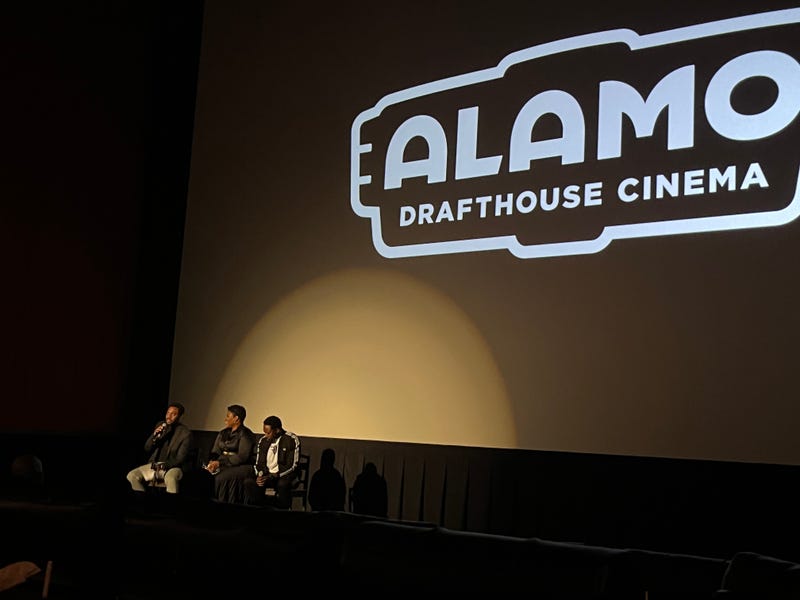
Dallas Foundation releases documentaries on racial equity in business
The nonprofit, Dallas Foundation, has released two documentaries and is producing a third on racial disparities in business. The series, "Giving Voice: Black CEOs in Their Own Words", was produced in collaboration with the George and Fay Young Foundation and produced by Universe Creative.
"We've got what it takes to solve our problems," says Dallas Foundation Chief Impact Officer Drexell Owusu. "We've got the people, the resources, the energy to go out and do this work. We need them to lean into that work, support us, trust us and allow us to do that better so we can make our city the place we all want it to be."
Owusu says the documentaries can show people from communities considered marginalized the opportunities available to them.
"This isn't a hopeless problem, this is an opportunity problem, and we can solve that," he says. "In my mind, in my opinion, we just have to keep plugging away, bringing the right resources, the right people, the right institutions to bear to make that work happen."
The documentaries were shown at Alamo Drafthouse in the Cedars south of Downtown Dallas. Twice as Good told the story of Kimberly Williams, chief executive of Interfaith Family Services.
"There's a common phrase in the African American home that you have to be twice as good," she said in the documentary. "I can't remember how young I was when I heard that."
Williams said one of her first jobs was interviewing families in public housing projects about what they want for themselves and their children and how Bill Clinton's "welfare to work" initiative could serve them.
"It was a game changer for me," she said. "I just thought like many people a lot of those families who live in poverty weren't as driven as the rest of us."
Instead, she said she learned families do not have reliable transportation or cannot afford childcare or classes.
Another documentary, Technicolor, covered the work of Byron Sanders, chief executive of Big Thought. Big Thought works with kids from "marginalized communities" to help them "determine and drive their own outcomes by equipping them with tools to navigate real-life challenges."
"You actually don't want to keep recreating the same struggle and trauma a person needs to go through in order to be able to thrive," Sanders says. "We shouldn't have to have that be the price of admission."
In Technicolor, Sanders said he has focused his work on young people to build a "just and equitable world."
"There's a lot of talent all over this city. There's a lot of talent all over this country," he said during the documentary. "There's a lot of talent in South Dallas, South Oak Cliff, Sanger Hills, Pleasant grove. Opportunity, though, there's not as much of that."
In an interview after Dallas Foundation screened the documentary, Sanders said work to help African Americans and Hispanics succeed benefits the entire region's economy by producing a skilled workforce and continuing to draw more business.
"We are going to have a more healthy society," he says. "At the end of the day, if we can build a system and change the systemic outlook for those who have been most marginalized, we all benefit from that."
A third documentary is now in production and will feature Taylor Toynes, founder of "For Oak Cliff." Since its launch in 2014, the organization has grown to 13 regular staff and now offers GED classes, tutoring, WiFi access and community space.
Dallas Foundation's Owusu says he hopes the documentaries inspire optimism and spark more conversations about the need for diverse leadership in the region's non-profits.
"We want to make sure race is not the predictor of outcomes in Dallas, Texas. The end," he says.
Details about the film series are available here.
LISTEN on the Audacy App
Tell your Smart Speaker to "PLAY 1080 KRLD"
Sign Up and Follow NewsRadio 1080 KRLD

